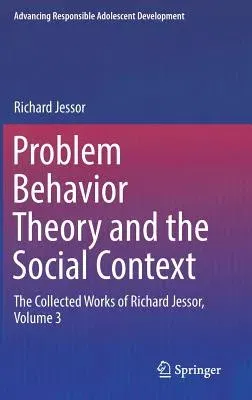This third and final volume of Richard Jessor's collected works explores
the central role of the social context in the formulation and
application of Problem Behavior Theory. It discusses the effect of the
social environment, especially the social context of disadvantage and
limited opportunity, on adolescent behavior, health, and development.
The book examines the application of the theory in social contexts as
diverse as the inner cities of the United States; the slums of Nairobi,
Kenya; and the urban settings of Beijing, China. It also provides
insight into how adolescents and young adults manage to "succeed",
despite disadvantage, limited opportunity, and even dangers in their
everyday life settings. It illuminates how these youth manage to stay on
track in school, avoid unintended pregnancy and dropout, keep clear of
the criminal justice system, and remain uninvolved in heavy drug use. In
addition, the book discusses the conceptual and methodological issues
entailed in engaging the social context, including the role of
subjectivity and meaning in an objective behavioral science; the
contribution of the perceived environment in determining behavior; the
continuity that characterizes adolescent growth and development; the
necessity for a social-psychological level of analysis that avoids
reductionism; the importance of a framework that engages the larger
social environment; and the advantage of adhering to systematic theory
for the explanatory generality it yields.
Topics featured in this volume include:
- Home-leaving and its occurrence among youth in impoverished
circumstances.
- The continuity of adolescent developmental change.
- The impact of neighborhood disadvantage on successful adolescent
development.
- Successful adolescence in the slums of Nairobi, Kenya.
- Explaining both behavior and development in the language of social
psychology.
Problem Behavior Theory and the Social Context is a must-have resource
for researchers, professors, clinicians, and related professionals as
well as graduate students in sociology, social and developmental
psychology, criminology/criminal justice, public health, and allied
disciplines.

